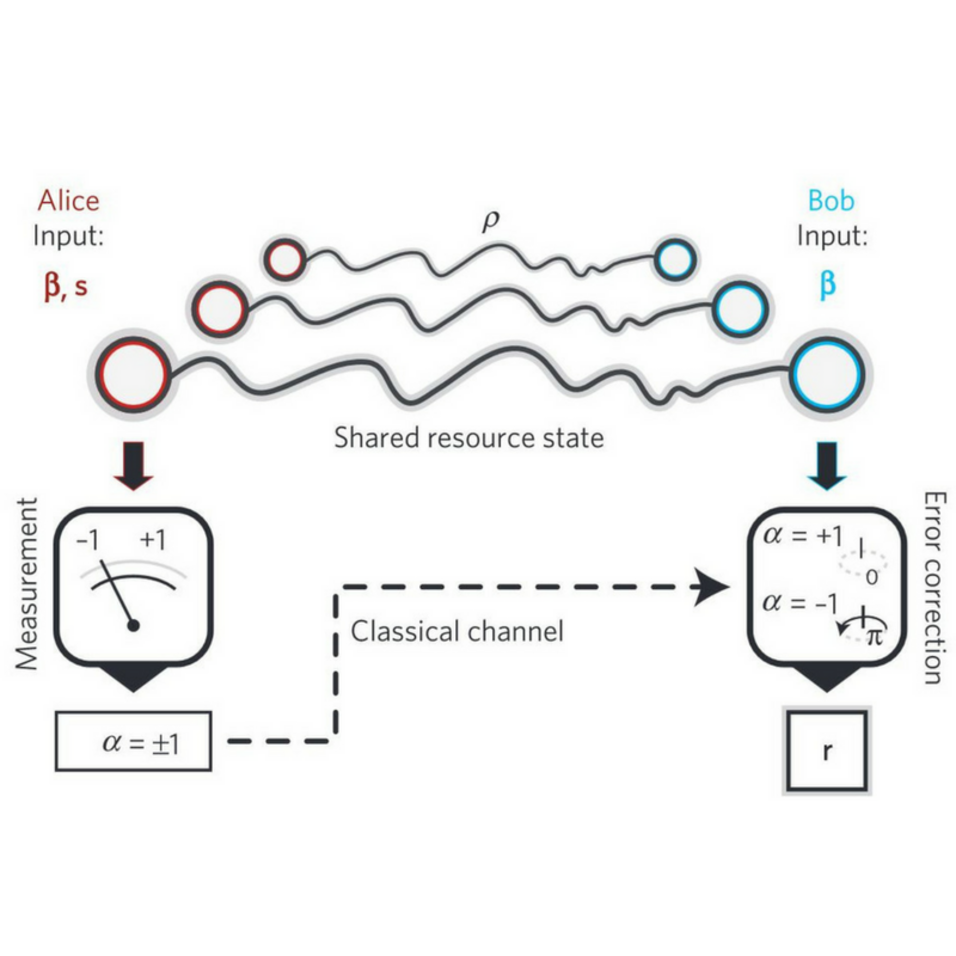New insights into the remote control of quantum systems
An international collaboration led by a team of Viennese researchers shines new light on the question of the resources required for achieving quantum information processing. The scientists demonstrate that less demanding resources, which are easier to prepare and to control, can be used for quantum-enhanced technologies. In the experiment, which is published in Nature Physics, the researchers achieve remote quantum state preparation without requiring entanglement as a resource.
A fundamental characteristic of quantum physics is the fact that two or more particles can exhibit correlations stronger than classically allowed. This unique characteristic applies particularly to quantum entanglement: as soon as the quantum state of a particle is measured the state of its entangled partner changes accordingly, regardless of how far apart the two entangled particles might be. This feature allows for the remote quantum state preparation, which is an essential ingredient for applications in quantum communication, quantum cryptography, and quantum computation.
The degree of entanglement is often used as a figure of merit for determining its usefulness for quantum technologies. Strongly entangled systems, however, are very sensitive to extrinsic influence and difficult to prepare and to control. A team of researchers headed by Caslav Brukner (theory) and Philip Walther (experiment) at the University of Vienna have been able to show that in order to achieve successful remote state preparation entanglement is not the only way forward. Under certain circumstances, non-entangled states can outperform their entangled counterparts for such tasks - as long as they have a significant amount of so-called “quantum discord.” This novel and not yet fully understood measure of quantum correlations quantifies the disturbance of correlated particles when being measured.
In their experiments, the researchers used a variety of two-photon states with different polarization correlations. “By measuring the polarization state of a certain photon we prepare the state of the respective partner photon remotely”, explains Philip Walther. “In the experiment we observe how the quality of our remotely prepared quantum state is affected by changes in the quantum discord.” This work provides an important and significant step towards future quantum information processing schemes that would rely on less demanding resources.
The research was undertaken as a collaboration between the Faculty of Physics at the University of Vienna and the Vienna Center for Quantum Science and Technology (VCQ), the Institute for Quantum Optics and Quantum Information (IQOQI) of the Austrian Academy of Sciences, the Centre for Quantum Technologies at the National University of Singapore, and the University of Oxford.
Publication appeared in Nature Physics
05.08.2012
Related Files

